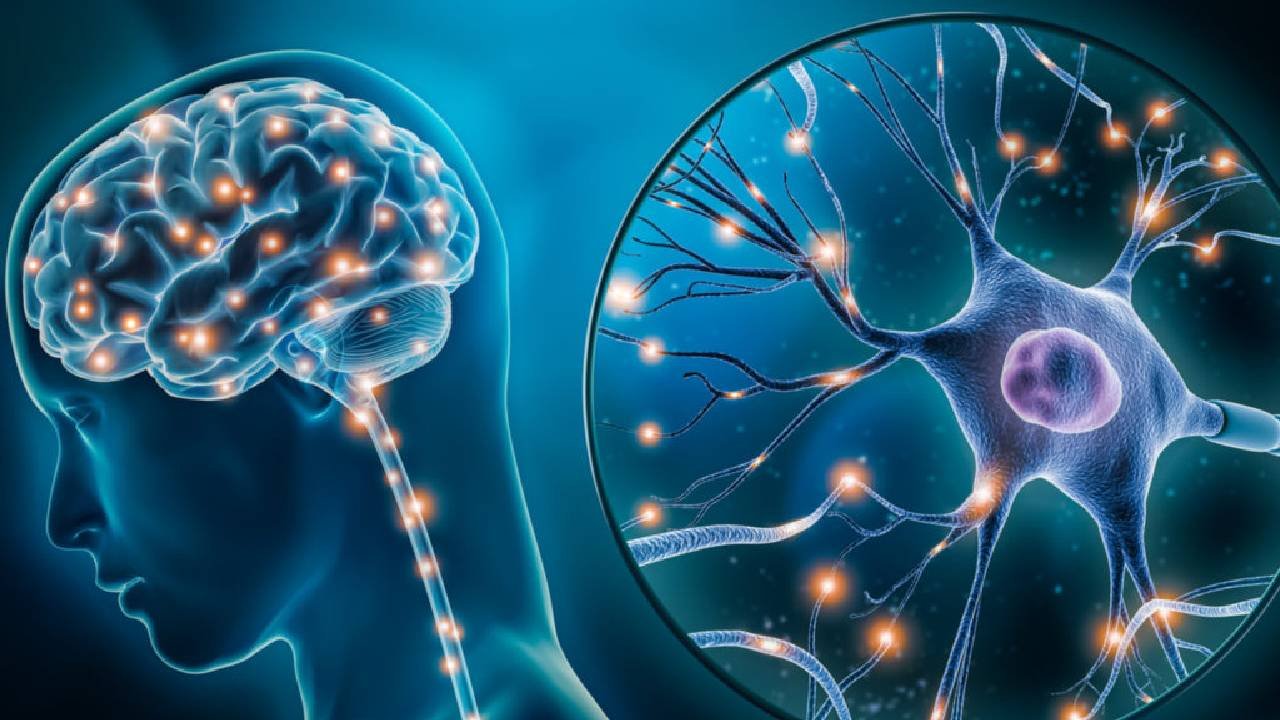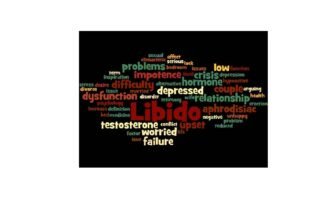Gamma-aminobutyric acid (GABA) is an amino acid, a class of chemicals essential to maintaining your wellness and the smooth functioning of the systems of the body. Like an inhibitory neurotransmitter, GABA’s primary function is to stop signals traveling from nerve cells toward the brain or spinal cord.
To particularly lower fear, anxiety, and stress, GABA inhibits specific nerve signals within the brain. Anxiety disorders and other illnesses could get more severe if the body doesn’t have enough GABA. What GABA is, how it functions, and what happens if a body lacks sufficient GABA activity are all covered throughout this article. It also discusses the use of drugs and memory supplements to control GABA activity. In the neurological system, neurotransmitters act as chemical transmitters. Neurons communicate with one another to transfer signals along the neurological systems, carrying messages. They might, for instance, send a message from the brain to the hand telling you to escape harm either from your hand to your brain informing you that a pot is hot.
GABA stops some nerve transmissions or signals since it is an inhibitory neurotransmitter. This stops neurons from being stimulated, which is how it operates. This indicates that a neuron does not respond to a message it obtains along the way, preventing the message from being passed to other neurons. GABA blocks messages about irrational emotions. In other words, GABA helps you avoid becoming extremely stressed or afraid by calming your nervous system. Difficulties with GABA signaling seem to be involved in diseases that affect the mental well-being or the nervous system. These would be referred to as neurologic and mental problems.
What Is Gamma-Aminobutyric Acid (GABA):
The central nervous system’s most prevalent inhibitory neurotransmitter is GABA. Inhibitory neurotransmitters reduce the activation of nerve neurons in the brain by preventing or blocking chemical impulses.
Most neurotransmitters function similarly. These are chemical messengers which transfer information between nerve cells in your brain. A synapse, which is a small region filled with fluid between every nerve cell, is present. This synapse is where neurotransmitters must deliver their message before landing on and binding to particular receptors on the following nerve cell (like such a key that only fits and operates in its complementary lock).
GABA-A and GABA-B are the two distinct kinds of GABA receptors found on nerve cells. The reactivity of the nerve cell is decreased when GABA binds to these receptors, even though they function in multiple ways. As such an inhibitory neurotransmitter, GABA reduces a nerve cell’s capacity to produce, receive, or transfer chemical signals to other nerve cells.
What connection does glutamate have to GABA?
An “on” and “off” switch is what GABA and glutamate accomplish. They function differently. The brain’s primary inhibitory neurotransmitter, GABA, prevents the transmission of chemical signals from one nerve cell to another. The primary excitatory neurotransmitter in the brain, glutamate, on the other hand, enables the transmission of chemical messages from one nerve cell to another.
The inhibitory activity of GABA and the stimulating impacts of glutamate must coexist in a fine balance for the brain to operate effectively. Along with serotonin, GABA collaborates with another neurotransmitter. In actuality, a healthy body and brain depend on a variety of neurotransmitters that interact and compete with one another in specific ways.
The enzyme glutamic acid decarboxylase reacts with glutamate to produce GABA.
GABA’s Function in Mental Health:
GABAergic neurons must start releasing GABA correctly to have an impact on mental health and make a contribution to neurological conditions (disorders of the nervous system and brain). Schizophrenia, autism, Tourette’s syndrome, and other disorders might well be impacted by improper GABA activity.
GABA activity prevents neurons from delivering signals which would “light up” the body, allowing you to respond to tension healthily. GABA levels can fluctuate for a variety of reasons, which may amplify anxiety. For instance, studies show that stressors experienced during a person’s early years and external stressors could both adversely affect GABA function in the body & lead to imbalances.
GABA deficiency is linked to difficulties performing standard mental tasks. Deficits in cognition are what cause this. For those who suffer from schizophrenia, a mental illness that affects correct thinking and conduct, this is crucial information. The symptoms of schizophrenia, such as hallucinations as well as cognitive decline, have been linked to issues with particular GABA-A receptors in the neurological system.
Even though the precise origin of autism spectrum disorder (ASD) remains unknown, research on both animals and people has discovered links between anomalies in GABA activity and ASD symptoms. There appears to be a connection between GABA and the way a person with autism has little interest or has trouble interacting with others. Research regarding autism appears to demonstrate that GABA doesn’t function independently. Various neurotransmitters and receptors may be impacted by GABA if there is an imbalance in it or vice versa.
The major depressive disorder has additionally been linked to the body’s reduced levels of GABA (MDD). 8 This is probably due to serotonin, another neurotransmitter associated with mood disorders, interacting with GABA as well as other neurotransmitters. Inadequate GABA activity may also lead to suicide, according to studies.
Advantages Of Preserving Normal GABA Levels:
Several unwanted, life-changing diseases and syndromes have been linked to incredibly low GABA levels. The good thing is that study indicates that raising GABA levels actively supports a variety of functions, including mood, attention, and sleep. You could increase GABA levels by lifestyle modifications, even though the body of studies focuses on the impact of GABA supplementation on various health outcomes (explained in depth in the following section).
In the thalamus, a part of the brain implicated in sleep functions, GABA-A receptors are also strongly expressed. In one research, individuals who had problems maintaining sleep had GABA levels that were about 30% lower than those of those who did not. In a recent survey, those who took 100 mg of Pharma GABA, a natural form of GABA, before bedtime saw quicker sleep onset and higher-quality sleep after a first-week supplementation.
In actuality, the majority of currently available sleep aids promote healthy GABA levels within the brain,” according to Breus. Furthermore, it has been demonstrated that taking supplements of magnesium, a GABA agonist (i.e., a chemical that attaches to GABA receptors and stimulates them similarly to GABA, according to Ruhoy), improves the quality of sleep.
The excitatory effects of glutamine are balanced by GABA, which is believed to also help regulate emotions of stress (because of this, many anti-anxiety medications focus on GABA-A receptors). The ability of sufficient GABA levels to have calming impacts is demonstrated by research. In one tiny experiment, subjects were given their choice of drinking filtered water, distilled water with L-theanine (a relaxing ingredient in green tea), or filtered water with a natural shape of GABA (Pharma GABA). An electroencephalogram (EEG) test was used to record the respondents’ brain waves 60 minutes later. They discovered that GABA substantially enhanced respondents’ alpha brainwaves (which are usually created in a state of relaxation) as well as lowered their beta brainwaves (that are generally shown in stressful conditions), especially in comparison to L-theanine or water.
Based on a few lab tests, early research indicates that GABA may help to maintain appropriate blood pressure.
GABA may be supporting healthy blood pressure through, it is hypothesized, assisting blood vessels to expand more.
A preliminary study showed that everyday supplementation with 80 milligrams of GABA had a good impact on adults’ blood pressure. More thorough studies will be required to determine how really helpful GABA may be for sustaining normal blood pressure.
According to Breus, low GABA levels may manifest as headaches and muscle soreness. Upon taking post-workout GABA supplementation with whey protein, healthy men between the ages of 26 and 48 who executed resistance training exercises like leg pushes, leg extensions, and leg curls two times a week displayed high muscular hypertrophy (meaning muscle development), according to a 12-week study carried out by from Japan.
How to keep the body’s GABA levels in a healthy range.
At least in certain parts of the brain, GABA+ levels do appear to normally decrease with advancing years.
Here are various methods to enhance GABAergic action (i.e., any activity that relates to or impacts GABA) in the body for a long time, backed up by studies.
- Dietary supplements containing GABA
Due to its simplicity in administration and management, supplements have been employed in numerous research looking at the impact of GABA on medical outcomes. A number of these research have made use of Pharma GABA, a naturally occurring form of GABA created through fermentation with the same bacterial strain (Lactobacillus hilgardii) being used to create kimchi. When taking supplements, “patients do perceive a response,” according to Ruhoy, adding “a few research suggests [they] do breach the blood-brain barrier.”
- Exercise and meditation
Exercise and meditation are two other methods for enhancing GABAergic activity. Clinically depressed patients were given the task of practicing yoga between two and three times per week in a recent study. Scientists determined that practicing yoga for 12 weeks temporarily raised GABA concentrations. They hypothesized that continuing to practice yoga every week in the form of one class could help keep those elevated levels. According to other studies, GABA levels rose noticeably (up to 27 percent) following a 1-hour yoga session. This study confirms those findings.
According to the results of another research, those who practiced meditation for 60 minutes had a considerable improvement in what is known as the cortical quiet period (CSP), which refers to the time when GABA-induced reduced cell activity occurs in the brain.
- Diet
For a wide variety of reasons, a nutritious diet is essential for preserving GABA function and concentration. For starters, an unhealthy diet could promote inflammation, placing an unnecessary strain on your body and reducing your capacity to produce and utilize GABA.
Furthermore, Ruhoy advises eating fermented foods because some of the microorganisms in them can also produce GABA. These comprise:
- Raw sauerkraut
- Kimchi
- Kefir
- Tempeh
- Yogurt
- Specific herbal dietary supplements
The GABA receptor agonist behaviors of a range of herbs have also shown them to have GABAergic action (similarly to how magnesium appears to work).
Safety and negative effects:
A wise and secure method for improving well-being is to take measures to optimize GABA through dietary and behavioral modifications. At approved doses, GABA supplements, particularly Pharma GABA (that has been granted “Generally Recognized As Safe” (GRAS) certification), appear to be fairly secure.
The supplement’s makers do not advise using it if you are expecting, nursing, or have children under the age of six. Vora and Ruhoy both advise 100 to 200 mg of GABA each if you decide to take it. According to Ruhoy, it is a typical dose that supplement makers advise, however some people like to take more.
FAQs :
Over 60 different neurotransmitters have been found so far, according to experts. Excitatory neurotransmitters, inhibitory neurotransmitters, and modulatory neurotransmitters are the 3 types into which they are grouped depending on their function.
Depression, schizophrenia, and anxiety disorders are a few examples of illnesses where a lack of GABA activity may be a factor. A few physical disorders, such as Huntington’s disease, dystonia, and muscle spasticity, also include it.
High GABA levels are currently being researched for their impacts. But even though the data is unclear, GABA is still being investigated for its potential to cure or prevent a variety of illnesses, such as Insomnia, Diabetes and High blood pressure.
Conclusion:
Thus it is obvious that GABA, the human body’s primary inhibitory neurotransmitter, is essential for both physical and mental health. And though diet, exercise, and stress-relieving techniques like meditation could indeed help you generate GABA, scientists are constantly pointing to the possibility that natural origin supplements, such as magnesium glycinate and Pharma GABA, may provide the additional boost you require, especially if you’re struggling with a condition like anxiety.







